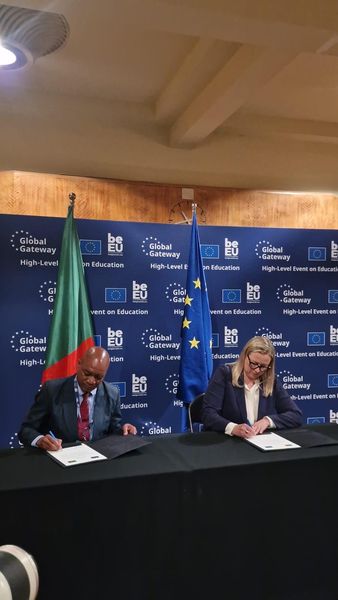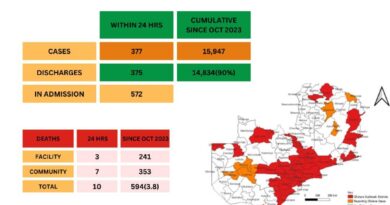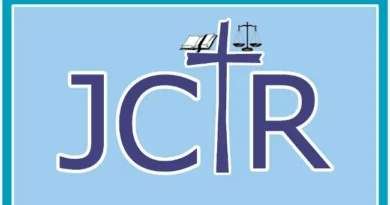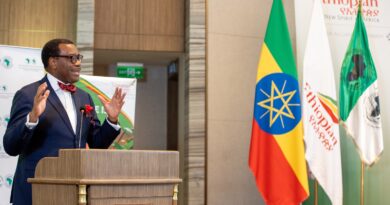Zambia Signs €110 Million Education Financing Agreements with European Union
The Minister of Education, Douglas Syakalima, representing Zambia, inked two significant financing agreements totaling €110,000,000 with the European Union at the Global Gateway High-Level event on Education in Brussels.
The first agreement entails financing towards Social Reforms amounting to €60,000,000. This budget support program aims at enhancing access, quality, equity, and inclusiveness in primary and secondary education. It also includes support for public financial management.
The second agreement, Equal Chances for Human Development, amounts to €50,000,000. It focuses on holistically improving Early Childhood Education and Development (ECED), with a specific emphasis on Luapula and North Western provinces.
Moreover, the Government of the Republic of Zambia has demonstrated its commitment to education by increasing funding from eight percent to 14 percent.
Additionally, the Constituency Development Fund (CDF) has been bolstered from 1.6 million to 30.6 million Kwacha. A substantial portion of these funds is allocated towards education infrastructure and learner support.
Remarks by EU Commissioner Ms. Jutta Urpilainen underscored the EU’s increased investments in education, reaching 13 percent in 2023.
She emphasized the EU’s commitment to providing over half of the global Official Development Assistance (ODA) to education through various channels until 2025.
The EU has achieved commendable results through budgetary support, performance assessment, policy dialogue, and capacity building, strengthening education systems through an integrated approach.
Furthermore, International Monetary Fund (IMF) Managing Director Kristalina Georgieva emphasized the critical role of education in economic stability and inclusiveness.
While acknowledging persistent challenges in access to education, she highlighted the IMF’s support for governments in financing priority investments like education, health, and social support.
Since 2018, the IMF has explicitly prioritized social spending, ensuring its protection and sustainability in programs supported by the IMF.



